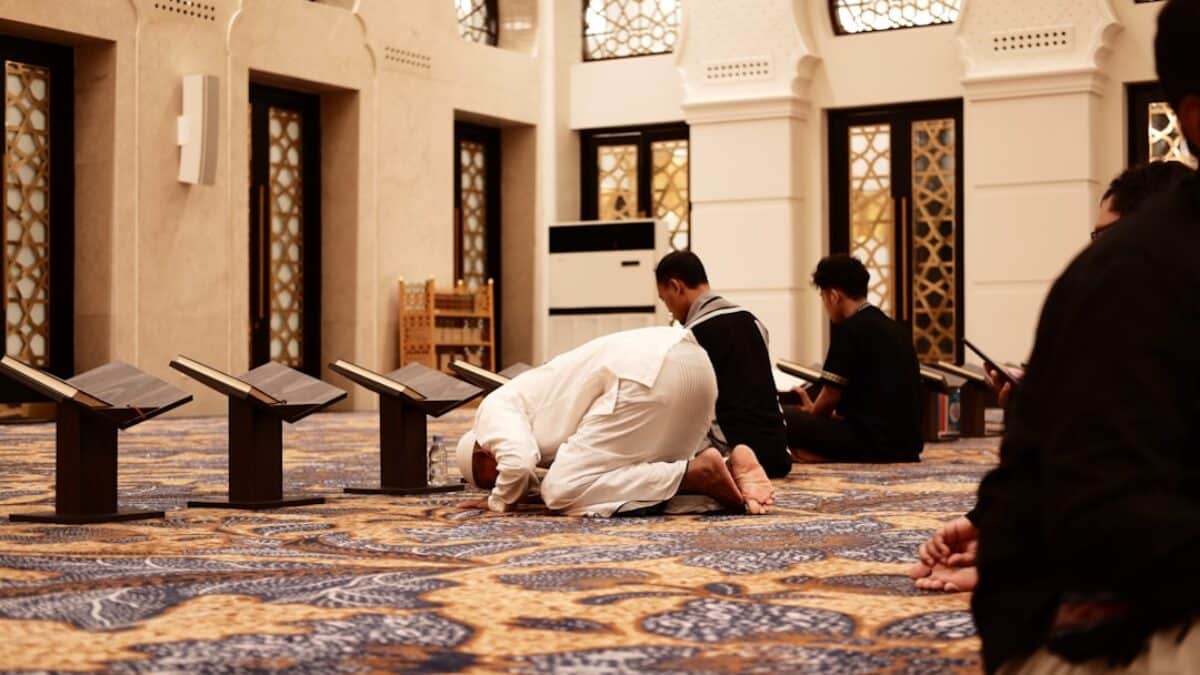Performing wudu, the Islamic ritual ablution, is an essential prerequisite for every Muslim who wishes to stand before Allah in prayer. Far beyond a simple “wash-up,” wudu is a spiritually-charged act that purifies the body, refreshes the heart, and readies the mind for direct conversation with the Creator. When performed correctly, it safeguards your prayer from being rejected and enriches it with heightened concentration (kushu’). In the following guide you will find everything you need—from the mandatory pillars to the recommended embellishments—so that every drop of water is turned into a source of divine reward.
Understanding Wudu in Islamic Law
Definition and Linguistic Roots
The Arabic word wudu’ (الوضوء) derives from wada’ah, meaning brightness, freshness, and purity. Technically, it is the prescribed washing of specific body parts using pure water in a set sequence, with the intention (niyyah) of removing minor ritual impurity (hadath).
Juridical Framework
All four Sunni schools—Hanafi, Maliki, Shafi’i, and Hanbali—agree that wudu is obligatory before:
- Touching or reciting the Qur’an.
- Performing salah (obligatory or voluntary prayer).
- Performing tawaf around the Ka’bah.
The schools differ slightly on details such as whether wiping the entire head or only part is sufficient, but these differences are cosmetic rather than core.
Spiritual Dimensions
The Prophet Muhammad ﷺ said: “When a Muslim performs wudu and washes his face, every sin he committed with his eyes is washed away; when he washes his hands, every sin committed with his hands is washed away…” (Muslim). This transformative aspect turns a mundane routine into a mini-ceremony of repentance and renewal.
Key Components of Correct Wudu
Obligatory Acts (Fard)
- Intention (niyyah)—in the heart before starting.
- Washing the entire face once, from hairline to chin and from ear to ear.
- Washing both hands and forearms up to and including the elbows once.
- Wiping at least a quarter of the head (most scholars say any part).
- Washing both feet up to and including the ankles once.
Missing any single one of these invalidates the wudu.
Sunnah & Mustahabb Acts
- Basmalah (Bismillah) before each limb.
- Miswak or toothbrush before rinsing the mouth.
- Gargling three times and sniffing water up the nose three times.
- Washing each limb three times (except head, which is wiped once).
- Khilal—passing fingers through the beard, between toes, etc.
These sunnan are rewarded by Allah and polish the ablution until it “radiates light on the limbs” on the Day of Judgement.
Step-by-Step Wudu Guide
Follow the sequence exactly; any deliberate change is makruh (disliked) and may require repetition.
Step 1: Make the Intention
Silently form your intention: “I intend to remove minor ritual impurity for the sake of Allah.” No verbal formula is required.
Step 2: Say Bismillah and Wash the Hands
Begin with Bismillah. Wash both hands up to the wrists three times, ensuring water reaches between the fingers.
Step 3: Rinse the Mouth and Nose
- Take water into the mouth, swish, then spit. Repeat three times.
- Suck water gently into the nostrils and eject it with the left hand. Do this three times.
Step 4: Wash the Face Three Times
From the hairline to the chin and ear to ear. Men with thick beards should run wet fingers through the beard (khilal).
Step 5: Arms to the Elbows
Start with the right arm, then left. Wash from fingertips to and including elbows. Ensure no spot remains dry.
Step 6: Wipe the Head and Ears
Using wet fingers, wipe the entire head once, front to back and back to front. Follow by wiping the inner and outer ears with new water.
Step 7: Wash the Feet
Begin right foot, washing up to and including the ankle. Run the little finger between the toes for khilal. Repeat three times each foot.
Step 8: Final Supplication
Upon completion, raise your gaze to the sky and recite:
“Ashhadu an la ilaha illallah wahdahu la sharika lah, wa ashhadu anna Muhammadan ‘abduhu wa rasuluh.”
The Prophet ﷺ promised that all eight gates of Paradise will be opened for the one who says it after wudu.
Practical Applications & Common Mistakes
At Home: Creating a Wudu-Friendly Space
- Install a bidet sprayer or keep a clean jug (lota) to conserve water.
- Place a small stool to sit while washing feet, especially for elders.
- Label the miswak holder so children adopt the sunnah early.
In the Workplace or School
Keep a portable wudu bottle (280 ml) in your bag. Use the disabled restroom for privacy and a dry floor. Dry your limbs with paper towels to avoid water pooling and complaints.
Travel: Airport & Highway Scenarios
| Scenario | Recommended Tool | Pro Tip |
|---|---|---|
| Airport lounge | Foldable silicon cup | Fill at water fountain, perform wudu in baby-changing room |
| Highway rest stop | 1.5 L sealed bottle | Use biodegradable wipes if water is scarce (dry ablution rules apply) |
| Camping | Gravity-fed water bag | Create a “wudu station” hanging from a tree branch |
Common Errors to Avoid
- Insufficient water on elbows or ankles—roll sleeves above elbows and pants above ankles first.
- Backwards sequence—washing feet before the face, for example.
- Talking about dunya matters—preserve the spiritual atmosphere.
- Using impure water—ensure the source is taahir.
Benefits and Importance
Physical Hygiene
Modern studies confirm that washing the mouth and nose reduces viral load by up to 34 %, while washing extremities reduces fungal infections like tinea pedis.
Psychological Readiness
The repetitive motion acts as a form of mindfulness. Neurologists note that ritualized cleansing lowers cortisol levels, preparing the brain for focused prayer.
Social Cohesion
Communal wudu areas in mosques foster ukhuwwah (brotherhood). Sharing water, offering soap, and reminding one another about missed spots build a mini-society rooted in mutual care.
Hereafter Rewards
Every drop used in wudu will testify for you on the Day of Judgement and will illuminate the limbs like polished silver. The Prophet ﷺ said: “My nation will be called on the Day of Resurrection with bright faces and limbs from the effects of wudu…” (Bukhari).
Frequently Asked Questions
What is the minimum water required for a valid wudu?
Approximately 675 ml is the sunnah quantity the Prophet ﷺ used. However, if even a single limb is washed adequately, the wudu stands. Conservation is encouraged; “Do not waste water even if you are at a flowing river” (Ahmad).
Does nail polish or waterproof makeup invalidate wudu?
Yes. Any substance that forms a non-porous layer prevents water from reaching the skin and must be removed beforehand. Breathable “wudu-friendly” nail polishes are permissible only if proven permeable.
Can I combine multiple sunnah acts into one wash?
No. Each sunnah wash should be distinct. For example, washing the face three times means three separate scoops and rinses, not one large scoop moved around.
What if I forget whether I washed a limb?
Follow the base certainty (al-asl): if you are unsure after starting, wash the limb again. Doubt after completion does not nullify the wudu.
Is it permissible to perform wudu while wearing socks (khuff)?
Yes, provided the socks meet Shari’ conditions: thick, non-transparent, covering the ankles, and worn after a valid wudu. You may wipe over them for up to 24 hours (72 hours when traveling).
How do women handle wudu during menstruation?
Women do not perform wudu for prayer during menses. After the period ends, they must perform ghusl (full bath) and then wudu.
What about medical conditions like bandages or casts?
You perform masah (wiping) over the cast if removing it is harmful. Normal skin areas are washed. Consult a qualified scholar for complex cases.
Conclusion
Mastering the art of wudu is not merely a checkbox before prayer; it is the gateway to spiritual excellence. When you perfect each step—beginning with a sincere intention and ending with a heartfelt du’a—you transform ordinary water into a shield against sin and a ladder to Paradise. Keep this guide handy, teach it to your children, and encourage your community to raise their wudu standard. The next time you hear the adhan, let the cool water remind you that cleanliness is half of faith and that every perfected wudu is a promise of radiant light on the Day when no shade exists save His. May every drop carry you closer to Allah, amin.
























Post Comment